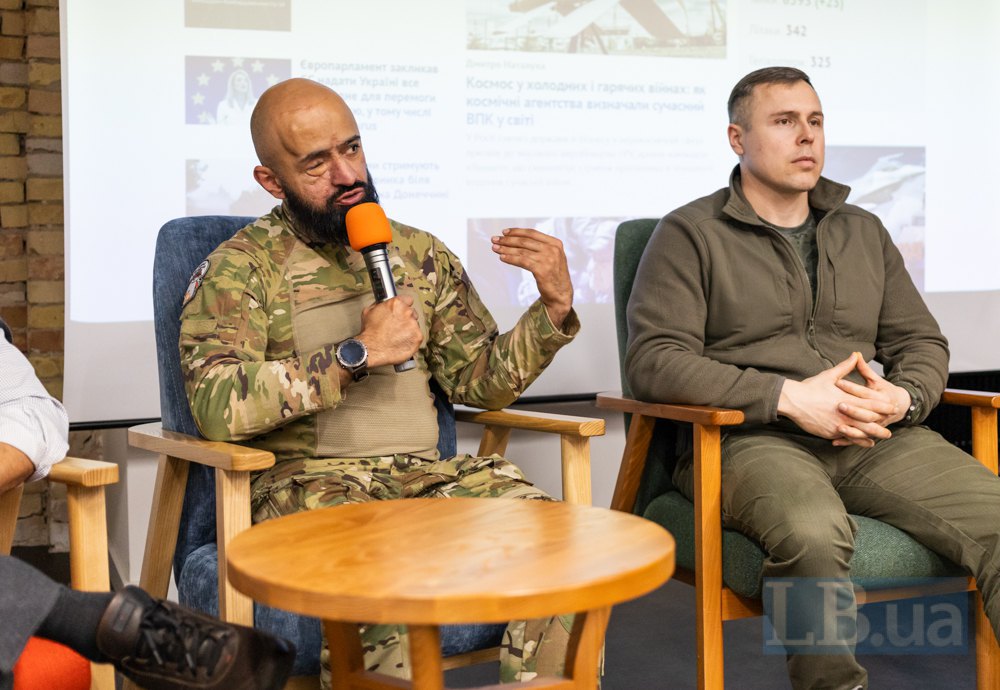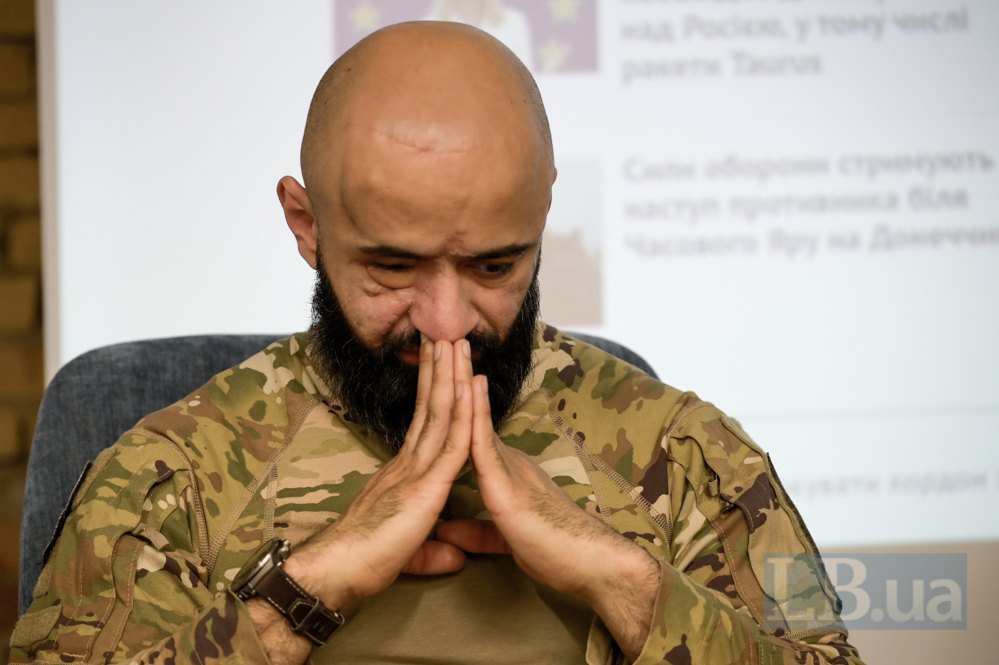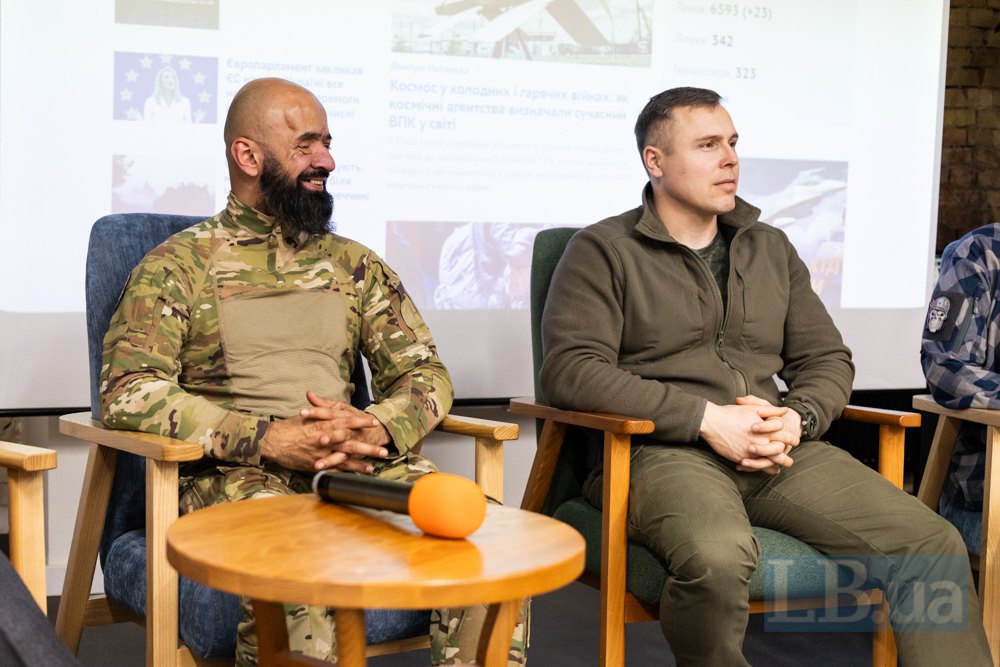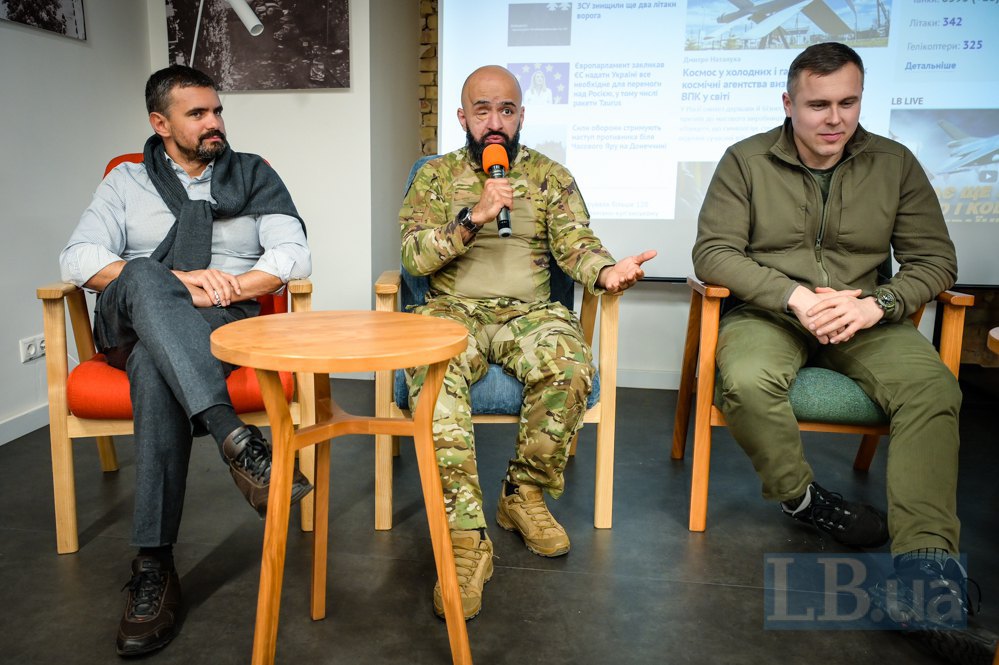How support for veterans works today
Veterans' policy is not primarily about benefits, says Armed Forces Capt Masi Nayem. Ukraine should drop the current approach, which is "typical of the Russians" too. Moreover, Nayem says that he personally has not taken advantage of any of the benefits offered by the state. He tried to apply for a subsidy for utilities, but it looked like "a shame, not help". He simply does not know about the other available services.
"Perhaps the veteran has some other tools, but I, the end user, have not received anything. I don't even know where to look for it," says the Armed Forces captain. Veterans who do not apply to the state are invisible to it.
"The system does not see wounded people who, for example, cannot walk to the place of service at all. People without hearing, without sight. So, if they don't come, it's their problem: they didn't come. And it seems to me that we need to proceed from the fact that we should not give people apartments - I doubt that now, during the full-scale invasion, there is a need for apartments... Most people have health problems, injuries, etc.", says Nayem.
In addition, he adds, in villages, no matter how many services are prescribed, the study shows that most territorial communities are unable to implement them. "In one united territorial community, a social worker wrote that they would not be able to provide benefits because they simply could not get there. The last time their bicycle was replaced was nine years ago," says the human rights activist.
What the veteran policy should change
Adequate treatment of veterans today requires fundamental changes at the level of the state and society, says Nayem.
"The law of Ukraine on the status of war veterans states in the very first line that this law promotes the formation of a respectful attitude towards them in society.
Young Business Club (at the Young Business Club forum for young entrepreneurs, Olena Tolkachova, head of the Azov Angels patronage service, was rebuked for wearing her military uniform because it scared men - ed.note) and other things show whether it exists," the human rights activist states.
The same is true with regard to the National Military Memorial Cemetery in the village of Hatne in Kyiv Region, which is conveniently accessible only to those who have a car, he adds.
"Do we want to appear caring or do we want to be caring and honour the memory of the heroes? Their families are also suffering from this war," Nayem says.

He also raised the issue of awarding a separate order to soldiers who died in the war.
"How many times have you seen a situation when a guy died and a petition was launched for him to be awarded the Hero of Ukraine? A million times? I cannot brace myself to write: 'Friend, he was not a Hero, he just died.' It is time to give a separate order to every person who died in the war. It is mandatory. Every person who died in this war should have their own order, because then the family understands that there is attention and gratitude," he insists.
In his opinion, it is impossible to implement a new veterans' policy without rethinking the social contract.
"In the 1990s, what was the social contract? The state stole from the people, and we didn't pay taxes and didn't touch each other. That's how we lived then. Kolomoyskyy grew up this way. Poroshenko grew up this way. Pinchuk grew up this way. Akhmetov grew up this way. We let them grow up.
The issue is that the social contract is the way we exist now. You are good if you went to defend it. If you don't, you're a devil, go defend it. When you are injured, you are a write-off. This is evident even in the fact that the Ministry of Defence of Ukraine paid wounded soldiers 800-1,000 hryvnyas a month until May 2023.
If I were written off (I don't have the status of a person with a disability now, because I haven't had a medical social expert commission test, I know I won't be written off), paid 1,000 hryvnyas a month and not allowed to work, I would kill people right here. What do you mean? I have higher needs. And 1,000 hryvnyas a month? Why?" says the AFU captain.
The state also needs to do something about the "insignificance" of the law enforcement system - today there is no trust in any law enforcement agency, including NABU and SAPO, Nayem believes.
"Do you know what will happen when a million people are demobilised and one of the law enforcement officers enters his business? This escalation will be the fault of those who have not dismissed law enforcement officers now. The same corruption in the Ministry of Defence. Have any law enforcement officers been fired?" he wonders.
In general, Nayyem says, the state should stop lying and start having an honest conversation, as we are a mature enough society to do so.

"Now the new law that will be written about veteran policy will lie to us again. You don't have to give us an apartment. Don't promise it. It is impossible to give us an apartment. Moreover, I have doubts that most veterans need an apartment.
Our main task as veteran politicians is to do what? To make the military equal to civilians. Not the dominant race, but equal. What does this equality mean? Equality is about returning the health that the state took away from them when they went to defend it. Equality is about giving me the opportunity to be competitive in the labour market. I don't need anything else. And it is very important not to go too far.
It is not news to you that the whole of Ukraine is at war. Here is a lady, here is a gentleman, here is a gentleman (points to the audience - Ed.), they work here now. If, God forbid or God help them, they have a child, I would go crazy [if I were them]. How would I feed the baby? She is also suffering. She is also a living person, she is here in Ukraine during the war. It used to be that until the age of 22, we could say that all civilians were devils, and we, the military, were good. Now it's impossible. Now the whole country is at war. Therefore, we need to build everything so that in 10 years we, veterans, will not be hated," Nayem suggests.
Veteran policy, he adds, should enable society to ensure that veterans are respected.
"So that my son - God willing, he will be born, someday it will happen - when Russia attacks again in 10-20 years, and it will - either we will destroy it now (I have my doubts) or it will attack again - that is, when he decides to go to war or be a draft dodger, he will look at me and say: "My father fought in the war. I'm sorry, he was so honoured in Ukraine after that that I'm going to fight." It's about strategy," says the human rights activist.

And if we write a veterans' policy, and then someone rewrites it five years later, and then rewrites it again, we will lose this state, he adds.
"Because all politicians will manipulate the military. This will happen 100%. We will not get away from this."
"Let me remind you of the case of Kateryna Handzyuk. Five people, former ATO participants, killed her because they were told she was a separatist. They did not even check this information. They got their 800 bucks, went and poured sulphuric acid on her. Because when these people came back, nobody wanted them. Because they needed money. They knew how to kill. And, you know, our protests will be much more fun with FPV. This is a scary story. I'm already telling the guys that soon the most necessary thing for business will be an electronic warfare device," says Nayem.
There is one more aspect, he notes: our military is already being bought by foreigners, and what will happen after the war is over?
"My operational sergeant was offered $10,000 for a mission in another country. I'm very grateful to him because he is all about the values, but I think it's rare. But now these people who are directly on the front line, when they are demobilised, they will move. And this is a rhetorical question: will he move to another country to follow his wife, or will he stay here? What has the state given him as a former soldier, a current veteran? Time is running out. While we are writing a law that provides for writing another law to write another law, we do not have this time," he adds.
But most importantly, he concludes, we do not have the main information - what exactly a veteran needs.
"What should we start from to at least cover the needs of the majority? It seems to me that most people do not need these benefits. I mention the apartment once again. If you ask every veteran if they want an apartment, of course, we want an apartment. I really do. I don't have an apartment of my own... But the most important thing is to give them everything to become equal to civilians... The only task of the state is to return the military to a situation where they can earn money for themselves. If not, they are a burden for the state," said Nayem.










![Masi Nayyem: "Often [state aid to veterans] looks like a shame, not help"](https://i.lb.ua/english/080/45/65e608729569c.jpeg)